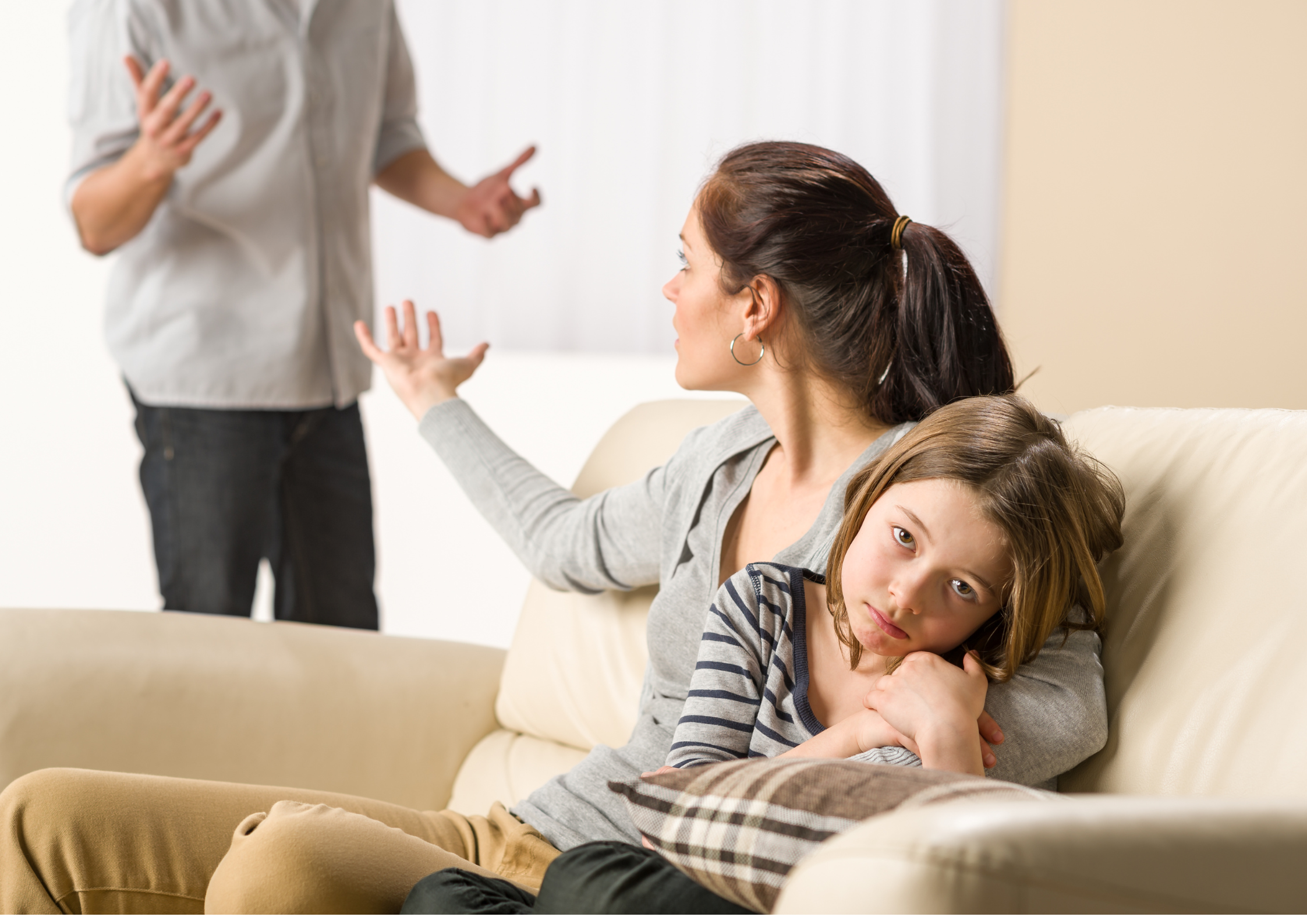Fighting in Front of the Kids: How Bad Is It?
What every parent should know about conflict, emotional safety, and the long-term impact on children.
Why This Matters More Than You Think
Let’s be honest: no one gets through a relationship without fighting sometimes. When life is busy, tensions build, and parenting brings stress you never imagined, it’s easy for arguments to happen in front of the kids.
You might try to keep your voice down or tell yourself, “They’re not really paying attention.” But kids are more aware than most parents realize. They pick up on tone, body language, and emotional shifts—even when you’re not saying much.
I work with many couples who carry guilt or shame about arguments their children have seen. The truth is, fighting in front of kids doesn’t automatically damage them. But how the conflict unfolds, and how it ends, matters a lot.
Image:
What Kids Feel When Parents Argue
Even when children don’t understand the words, they feel the emotional weight of an argument. Their nervous systems are wired to sense changes in safety.
You may notice your child becoming quiet, clingy, anxious, or even acting out. That’s not them trying to “get attention.” That’s their body responding to stress.
Toddlers and young kids often blame themselves, even when the argument has nothing to do with them.
School-aged children might retreat or try to “fix” things to make the tension go away.
Teens may act like they don’t care but feel unsettled and emotionally unsafe.
These reactions don’t make you a bad parent—they’re a sign of how much your kids rely on you to feel safe.
When Arguing Becomes Harmful
Conflict itself isn’t the enemy. It becomes harmful when the fight turns intense, scary, or happens over and over again.
Some red flags include:
Yelling or raised voices
Name-calling or insults
Threats, ultimatums, or slamming doors
Emotional shutdown or withdrawal that leaves everyone on edge
When kids repeatedly see or hear this kind of conflict, it can impact their sense of security, their mood, and even how they handle emotions later in life. Over time, chronic exposure to high-intensity arguments can lead to anxiety, trouble focusing, and emotional reactivity.
You don’t need to have “perfect” communication to protect your kids—you just need to know when things have gone too far and learn how to repair afterward.
Healthy Conflict Is Possible: What Kids Can Learn From Repair
Here’s the good news: kids don’t need to grow up in a home without conflict. They need to see that conflict can be handled with respect, care, and repair.
When children witness parents calming down, listening to each other, apologizing, or finding a way to move forward, they learn something powerful: that relationships can have hard moments without falling apart.
Repair looks like:
Owning your part in the conflict
Apologizing sincerely
Showing affection or reassurance
Talking with your child afterward if they witnessed the fight
When kids see that a disagreement doesn’t mean danger or disconnection, it builds trust and emotional resilience.
How to Protect Your Kids During Conflict
There are practical ways to handle disagreements in a way that protects your children’s emotional well-being.
Step away before escalation. If the fight is heating up, take a short break and return when you can talk calmly.
Avoid name-calling or yelling. Even if your child isn’t in the room, they can hear and feel it.
Keep children out of adult issues. Don’t involve them, ask them to pick sides, or vent to them.
Reassure afterward. Let them know, “We had a disagreement, but we’re okay and we love you.” That simple reassurance can reduce anxiety.
Get support if needed. Frequent or intense fights can leave everyone feeling stuck. That’s when therapy can make a difference.
How Couples Counseling Can Help
You don’t have to figure this out on your own. Couples counseling gives you and your partner a space to work through conflict in a way that protects your relationship and your family.
In therapy, couples learn how to:
Communicate without escalating.
Understand each other’s triggers and emotional needs.
Repair after conflict in a way that feels genuine.
Build a more stable and secure home environment for their children.
At Poole Conflict Solutions, we work with couples every day who want to reduce conflict and protect their kids from emotional harm. Through marriage counseling, relationship counseling, and couples counseling in Maryland and Virginia, we help families build stronger, more peaceful homes.
Final Thoughts and Next Steps
Arguing in front of your kids doesn’t make you a bad parent. It means you’re human. What matters most is how you handle the conflict, how you repair afterward, and whether your home feels emotionally safe.
If fights feel stuck, intense, or too frequent, therapy can help you break those patterns and create a healthier environment for your entire family.
At Poole Conflict Solutions, we specialize in helping couples navigate high-conflict patterns, parenting stress, and communication breakdowns. We offer virtual couples counseling across Maryland, Virginia, and Washington, DC.
👉 Schedule a free 15-minute consultation today to take the first step toward a calmer home and a stronger relationship.



